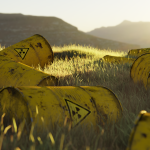Motion sickness, in general, is caused when your inner ear and your eyes disagree about whether you’re moving. When you read in a car, your visual field stays still but your inner ear detects the twists and turns. This sensory conflict triggers nausea, possibly because the brain thinks you’ve eaten something toxic that’s making you hallucinate. Motion sickness occurs when… Read more →
Day: 18 October 2021
Muscle Fatigue
At the start of exercising or when performing tasks, your muscles feel strong and resilient. However, over time and after repeating movements, your muscles may begin to feel weaker and tired. This can be defined as muscle fatigue. Muscle fatigue is a symptom that decreases your muscles’ ability to perform over time. It can be associated with a state of… Read more →

What is Proning and How to breathe better when Oxygen level drops?
As the coronavirus pandemic progressed and patients struggled to breathe, hospitals across the world learned that very sick patients were able to breathe better when they were flipped onto their stomachs. ‘Proning’ is a medically accepted position to improve breathing comfort and oxygenation in COVID-19 patients. This positioning, called proning (or prone-positioning), has been used for decades to improve clinical outcomes… Read more →

How come Monstera leaves have holes?
Montseras have developed holes because of the lighting conditions they naturally live in. Monsteras grow from the forest floor, vining up to capture the light that enters through the overhead canopy. The only way plants can survive in such environments is by catching as much of the small rays of sunlight that make their way through the canopy. The holes… Read more →

Dead Beached Whales are Dangerous?
When large whales die, one of two things can happen: their bodies can sink to the bottom of the ocean and go on to support smaller life forms; or their bodies can wash up on some random beach somewhere in the world. The first case is obviously the most preferred, but occasionally, the second case transpires – sometimes in large… Read more →

Nuclear/Radioactive waste
Radioactive waste is a type of hazardous waste that contains radioactive material. Radioactive waste is a result of many activities, including nuclear medicine, nuclear research, nuclear power generation, rare-earth mining, and nuclear weapons reprocessing. The storage and disposal of radioactive waste are regulated by government agencies in order to protect human health and the environment. This waste is broadly classified… Read more →
